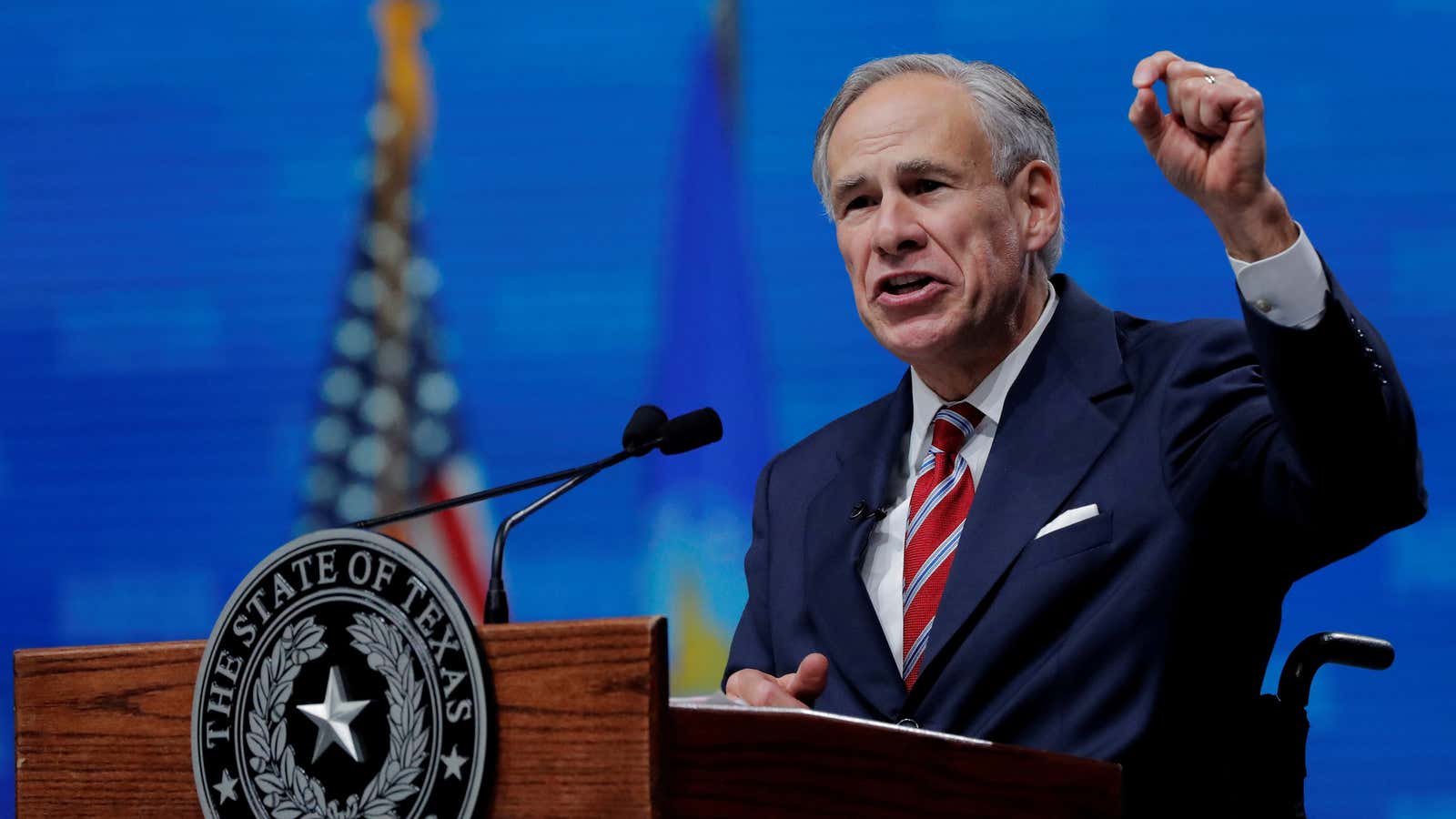Last week, Texas Governor Greg Abbott signed a bill into law that forbids the largest social media companies from removing users or their posts based on their political viewpoints. It also lets Texans sue social media websites with more than 50 million US users over perceived violations.
The law categorizes social media platforms as public forums and “common carriers,” a term often used to describe phone companies or utilities that in most cases cannot discriminate against customers. The law empowers the state’s attorney general and private citizens to sue over alleged violations.
While the law claims it protects individuals from “censorship” on social media websites, it also appears to violate private corporations’ own speech rights. Free speech scholars and advocacy groups say the Texas state government unconstitutionally dictates political speech on the world’s largest platforms by forcing platforms to carry favored views.
The tech industry group NetChoice wrote in a statement the Texas law forces websites to host “obscene, antisemitic, racist, hateful, and otherwise awful content.”
Kate Huddleston, an attorney with the American Civil Liberties Union of Texas, says governments forcing private parties to carry political content violates the First Amendment protections under the US Constitution. “Government efforts to curate online content on particular platforms is an impermissible exercise of editorial control—just as government cannot force newspapers to carry political speech,” she said. A similar state law in Florida, which would have forced social media sites to host political candidates and their speech, was blocked by a federal judge on June 30 on First Amendment grounds.
Social media platforms enjoy First Amendment rights to set and enforce rules about content free from government restrictions, says Jonathan Peters, a media law professor at the University of Georgia School of Law. “That means the platforms can decide what may be posted, who may have an account and under what conditions, when to honor requests to remove content, how to display and prioritize content using algorithms, and so on,” he said.
Aaron Mackey, a senior staff attorney at digital rights group Electronic Frontier Foundation says Texas will face a tough battle to ensure the law survives judicial review. It does not appear that any lawsuit has been filed yet. Mackey explained that any law that restricts speech based on content would be subject to the strict scrutiny standard under the First Amendment, a high bar requiring the government to show the law was narrowly tailored with a compelling public interest. Mackey argued the law fails to meet this standard.
The office of Texas governor Greg Abbott did not respond to press inquiries.
Texas, Florida face hurdles to censorship laws
Legal analysts say laws like the new Texas bill also appear to violate Section 230 of the Communications Decency Act, a clause shielding internet companies from liability for publishing and moderating potentially objectionable user-generated content.
The clause, which has enabled the internet’s evolution as a relatively unregulated forum, gives the world’s largest tech companies safe harbor to host, remove, or ignore content without fear of litigation.
But the foundational law is now under attack by Democrats and Republicans alike who say they want to reign in online excesses. Liberals have largely criticized social media companies for being too lax on policing their platforms from hate speech and misinformation during the Trump era, while conservatives have claimed (without much evidence) that these platforms stifle conservative speech. Peters at the University of Georgia School of Law said the Texas law amounts to “political theater” rather than a good faith effort to protect speech.
“The Texas law is plainly unconstitutional, and it will be struck down,” Peters said. “It violates the First Amendment while cynically pretending to protect the First Amendment.”
